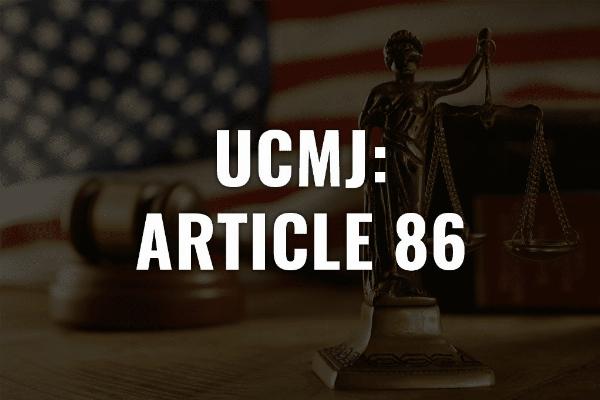 Automated Blog-to-Social Sharing – Publish Once. Appear Everywhere!
Automated Blog-to-Social Sharing – Publish Once. Appear Everywhere!
Navigating UCMJ Articles: A Guide for Service Members
Written by Bilecki » Updated on: June 17th, 2025

Understanding the Uniform Code of Military Justice (UCMJ) is crucial for anyone serving in the military. UCMJ articles establish a foundational legal framework designed to maintain order and discipline within the armed forces. We will provide insights into UCMJ articles, highlighting their significance, common offenses, and the importance of legal representation when facing potential charges.
What are UCMJ Articles?
The UCMJ consists of 12 chapters that cover various aspects of military justice, including offenses, legal procedures, and the rights of service members. Each article within the UCMJ addresses specific behaviors and corresponding legal repercussions. The ucmj articles are enacted to ensure service members uphold the military's values and maintain discipline, which is paramount in a cohesive military environment.
Importance of UCMJ Articles
The UCMJ serves several critical functions:
Maintaining Discipline: The articles ensure that all service members adhere to a strict code of conduct, fostering a disciplined environment crucial for military operations.
Establishing Legal Standards: UCMJ articles provide clear definitions of offenses and prescribed punishments, creating uniformity in military justice.
Protecting Rights: The UCMJ includes provisions designed to protect the rights of service members, ensuring they receive fair treatment throughout the legal process.
Common UCMJ Articles and Their Implications
While the UCMJ comprises numerous articles, several are particularly relevant due to their frequency in cases involving service members. Here are a few notable examples:
Article 15: Non-Judicial Punishment
Article 15 allows commanding officers to impose disciplinary measures without a court-martial. This can include lost pay, extra duties, or restrictions. It's a way to address minor misconduct quickly without formal judicial proceedings.
Article 77: Accessory After the Fact
This article makes it an offense to assist someone who has committed a crime, knowing they did so. In military contexts, this could involve aiding a fellow service member after they have committed an offense.
Article 81: Conspiracy
Article 81 addresses conspiracy to commit an offense under the UCMJ, which means that even planning a crime can result in charges. The penalties can be severe, reflecting the military's commitment to preventing criminal behavior.
Article 134: General Article
Article 134 is often termed the "catch-all" provision and covers offenses that may not fall under specific articles. It can include everything from indecent conduct to failure to obey lawful orders. Given its broad application, charges under Article 134 can have significant implications for service members.
Consequences of Violating UCMJ Articles
The repercussions for violating UCMJ articles can be severe and vary based on the nature of the offense. Potential consequences include:
Retention Issues: A conviction can affect a service member's ability to remain in the military, possibly leading to unfavorable discharge statuses.
Criminal Record: Military convictions can lead to a lasting criminal record, impacting future employment opportunities and personal life.
Loss of Rank or Pay: Disciplinary actions may result in demotion or financial penalties, affecting a service member's financial stability.
The Importance of Legal Representation
Given the serious nature of UCMJ articles and the potential consequences for violations, it is crucial for service members to seek legal advice if facing possible charges. An experienced attorney familiar with military law can navigate the complexities of military justice efficiently.
At Bilecki Law Group, we understand the intricacies of UCMJ articles and are committed to defending the rights of service members. Our legal team can provide personalized support, ensuring that you have the best chance of a favorable outcome.
Navigating UCMJ articles is essential for every service member. Understanding these articles and their implications can help ensure compliance and mitigate potential legal issues. If you find yourself facing allegations under the UCMJ, don’t hesitate to seek qualified legal assistance. Remember, you have rights, and with the right support, you can navigate the complexities of military law effectively.
Note: IndiBlogHub features both user-submitted and editorial content. We do not verify third-party contributions. Read our Disclaimer and Privacy Policyfor details.
Copyright © 2019-2025 IndiBlogHub.com. All rights reserved. Hosted on DigitalOcean for fast, reliable performance.













